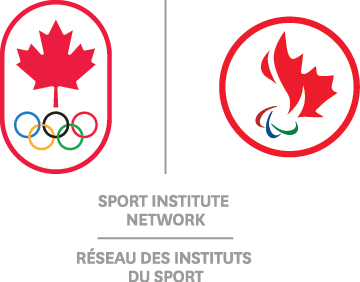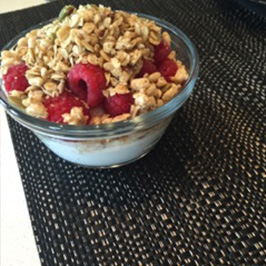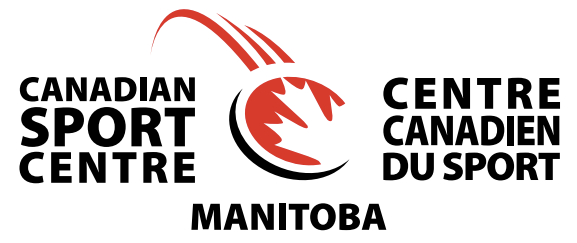5 Nutrition Tips to Keep Your Immune System in High Performance
For high performance athletes, following a nutrition plan that supports the immune system is essential in order to meet the high demands of training and reduce the risk of illness and injury. The same is true for anyone involved in an intense training program.
Luckily, there are many convenient, easily accessible foods known to have a positive impact on the immune system. Here are five nutritional recommendations to support your immune system and set you up for success.
1. Choose foods rich in antioxidants
Add some colour to your meals and snacks with a variety of fruits and vegetables such as oranges, berries, papaya, sweet potatoes, broccoli, spinach and beets. These colourful foods are rich in antioxidants, which help prevent the cell damage that occurs in the body due to the production of free radicals. These damaging free radicals can be produced as a result of stress, aging or strenuous exercise. Physical activity at moderate to high intensities for a prolonged period of time results in a much higher increase in free radicals, contributing to muscle fatigue and a decrease in athletic performance.
Should you supplement?
While eating a diet rich in antioxidants benefits the immune system, it’s not necessary to supplement with antioxidants, especially if you are an athlete training at high intensities. These supplements commonly provide much higher doses than the recommended dietary intake, and can actually negatively affect performance. Although a high performance athlete will have higher dietary needs, supplementation is typically not necessary if you follow a balanced nutrition plan.
Antioxidant boosting ideas:
- Add spinach, kale or avocado to smoothies
- Blend veggies such as broccoli, spinach and carrots into pasta sauces or lasagna
- Make homemade fries in the oven using sweet potatoes instead of regular potatoes
- Have a fruit and yogurt parfait made with fresh berries for breakfast or a snack
2. Include lean proteins that are rich in iron and zinc
Iron is an essential nutrient, meaning that the body requires it from outside sources such as food or supplements. Iron is responsible for transporting oxygen throughout the body, and low iron stores can result in dizziness, fatigue and lowered immunity. Regular exercise increases the body’s need for iron, as you’re using a higher amount of iron. There’s also an increased risk of iron loss – through sweat, blood loss from injury and menstruation, or damage to red blood cells from running on hard surfaces.
Zinc is also an important nutrient for the immune system and works in the body to help fight infection and battle against damaging free radicals.
Turkey, fish, lean ground beef and eggs are excellent sources of iron and zinc and are the most easily absorbed in the body. Iron and zinc can also be found in plant sources including nuts or nut butter, seeds, leafy green vegetables and legumes as well as iron-fortified breakfast cereals. Although plant sources are rich in iron, they are not as easily absorbed and should be combined with plant Vitamin C foods (citrus fruits, fruit juice, strawberries, broccoli, tomatoes and peppers) to enhance absorption.
Ideas for increasing zinc and iron in your diet:
- Choose iron-fortified cereals for breakfast and have a glass of orange juice on the side
- Eat lean red meat, turkey and fish daily
- Squeeze lemon or orange juice over vegetables
- Avoid drinking coffee and tea when eating plant-based iron foods as these beverages can decrease the absorption of iron when eaten at the same time
3. Get more Vitamin D in your diet
Not only is Vitamin D important for maintaining strong, healthy bones, it may also help fight off infections, keep the immune system healthy and prevent frequent illness. Vitamin D is not naturally found in many foods, which is why foods such as milk, orange juice and some cereals are often fortified with Vitamin D. It’s also found in egg yolks, sundried mushrooms and fatty fishes like salmon and tuna.
Ideas for increasing Vitamin D in your diet:
- Make smoothies for breakfast and snacks with fortified dairy or non-dairy milk
- Have a tuna salad sandwich or canned tuna and crackers for an easy recovery meal
- Add mushrooms to an egg omelet and have a glass of fortified orange juice for breakfast
- Include fish that is rich in Vitamin D as your protein source for lunch or supper two to three times a week
4. Include foods with probiotics and prebiotics
Probiotics are good bacteria that keep the digestive and immune system healthy. Probiotics are often added to foods such as milk, kefir and yogurt.
Prebiotics are non-digestible carbohydrates that serve as food for probiotics, allowing them to multiply and remain in the digestive system. Prebiotics are found in onions, leeks, chia seeds, bananas, artichokes and honey.
5. Focus on carbohydrates and protein before and after exercise
Delayed eating, inadequate carbohydrate intake and improper timing of protein intake can increase the risk of illness and infection. Aim to eat carbohydrates and quality protein before and after training to provide sufficient energy throughout the training session and to promote a quick recovery.
Consider choosing the following meal and snack ideas for before and after training that contain all of the immune boosting nutrients discussed above:
- Fruit smoothie (milk, yogurt, fruit) and toast
- Lean meat sandwich, carrot sticks, milk and strawberries
- Fortified cereal with milk and berries, and a glass of orange juice
- Canned tuna with crackers and a glass of chocolate milk
So there you have it! Finding ways to increase the antioxidants, iron and zinc, Vitamin D, probiotics and prebiotics in your diet, and getting adequate and well-timed pre- and post-workout carbs and protein can help boost your immune system. By putting these simple nutrition ideas into practice, you’re setting your body up for success and peak performance – in sport and in everyday life.




